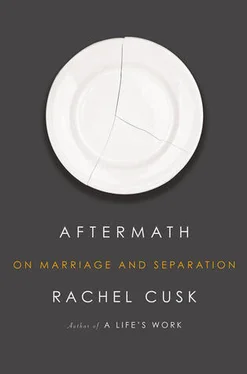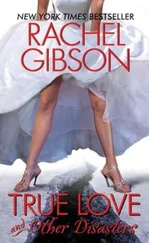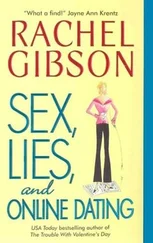There is no crying now, at my mother’s birthday party. I look around at my family as though through a million-splintered pane of glass. The world on my side of the glass is as white and cold and silent as an Arctic plain. A song is sung; the cake is cut and cut, divided and redivided into numberless sections. I feel a certain relief at its dismantling, but a cake is not a jigsaw. Its character survives: no matter how finely you cut it, each section replicates the strata of the whole. A piece is put in front of me, my portion, but the others take their portions too. I watch the plates go around the table. I am inflicting failure on my family, or else they are relieving me of it. We lift our glasses in a toast. My mother tells me to eat: she can see my bones. My father says he thinks my driving has improved since I’ve been on my own. My grandmother pats my hand. Mark my words, she says, you two will make it up. Just you wait and see.
My sister comes to stay and we take our children to the park. It is a grey weeping Sunday afternoon. In the greyness the colours hurt, the red of passing buses, the yellow vests of men drilling in the road nearby, the drab fluorescent pink and blue of children’s bicycles passing on the tarmac paths. The grass is sodden underfoot. I watch the people, the mothers with their buggies, the old men standing while their dogs sniff at the verges, the fathers in sports clothes kicking balls in the drizzle, the children roaming the fenced playground with a kind of stillborn exhilaration, like animals in captivity. We take the children to the swings. I watch my daughters: sometimes, when I look at them, it is as though they are wearing masks. Their faces take on the immobility of representation, like the white masks of antiquity with their downturned mouths, though quite what they are representing — their own unhappiness or mine — I am not sure. Either way, something that should be hidden is suddenly visible. The unselfconsciousness of childhood is reversed: they are children turned inside out.
When it starts to rain we leave the park and walk through the leafy Victorian streets of this neighbourhood, which is not my own. I have been thinking I might move over here, away from the disturbances of the sea; might move away from the strain of ceaseless change, the heaving water always so naked, so abandoned, rolling in darkness and light. I imagine a home here, in this redbrick clamp of streets, imagine it as safe and faintly purgatorial, a continuing sameness in which my sins will not devour me but will be dutifully paid off over a lifetime in small increments, like a mortgage. It is the annual weekend where the city’s artists open their houses to show the public their work, and when we pass one we go inside, out of the rain. On the walls there are framed photographs, watercolours, oil paintings; further in there are racks of handmade postcards, and prints stacked up in cellophane wrappers on a table. Again and again their subject is the sea. Here it is in its stormy mood, and there in its benign; here a sheet of empty glare, there a broken surface releasing light. We see it with and without sailing boats, at dawn and dusk, peopled and deserted, wintry, balmy and dull. There are pictures of seaweed, of driftwood, of the pebbles on the beach. There are pictures of the painted huts that line the esplanade: they remind me of the lined-up saints that surround early Renaissance portraits of the Madonna, for in its devotion and repetition this too is a display of religious iconography, its goddess the ocean. In these streets there is no sight or atmosphere of the sea: this could be a pleasant neighbourhood in any landlocked town. There is something obsessive, something almost fetishistic in these images, preoccupied as they are with what is absent, or rather with what is just out of reach. I mistrust this exposure of that which already exposes itself, the naked sea; the mind feeding off its dramas from the safety of the suburb. Yet I imagine moving here, and hanging a picture of the sea on my wall. It has been my belief that the only way to know something is to experience it, that the truest forms of knowledge are personal. Now I imagine a different kind of knowledge, knowledge without exposure, without risk; the knowledge of the voyeur, watching, assessing, staying hidden.
The children tug at our sleeves: they are bored, and want to go. Outside we continue along the rainy pavements. Water drips from the trees. At the end of the road there is another open house, and the children run ahead and disappear inside. We follow, and find ourselves in a front garden as fanciful as a fairy tale, full of chiming bells and odd little creatures made of clay. Behind it stands a house deep in its gloom of trees. It has stained-glass windows and gables scalloped like the hair of an eccentric milkmaid. The door is open: inside all is sepia, and rich with dust. We pass through the hall and into a large disorderly room that is full of a strange, jewelled light. Though it is sullen and grey outside, the stained-glass windows cast their coloured oblongs inward. A lady stands at a large table, with the windows at her back. She is extremely tall, with long fair plaits. In front of her, on the table, are a number of curious hats or headdresses; and standing at the table are the children, who as we enter turn around. One of my daughters has become a stag, with dark branching antlers; the other a fox, with a long russet nose and a velvety head. My little niece has become a fieldmouse, my nephew a badger with a bushy white crest. They look at us with dark glossy eyes through the tinted light. In the few minutes of our absence they have been transformed: they are creatures startled in a forest glade by the approach of danger. The lady, too, is satisfied by the drama of their appearance. She makes the masks herself, she tells us: they are designed for adults, but they look much more lifelike on children. She herself likes to wear the stag, though it does make her terribly tall.
Presently the children take the masks off, all except the stag, whose fondness for hers has perhaps been intensified by hearing that its owner has a special fondness for it too. Can I have it? she asks me. Will you buy it for me? She says this from within the face of the stag, for I can’t see her mouth. The mask is richly made, beautifully heavy and padded: its transformation of her is complete, yet it seems too to have accommodated her own nature, so that I find I’m already quite used to her looking like that. In a strange way we are both relieved by her metamorphosis. The lady tells me the price. It is high, but not as much as I expected. My stag-daughter watches me, alert, bright-eyed, perfectly still. Please, she says. Please, I love it.
Everyone waits to see what I will do, my niece and nephew, my daughters, my sister, the tall lady with the fair plaits. They sense a vacuum of authority. How is it possible that we set out for a walk in the park and have ended up embroiled in the purchase of a bohemian headdress? The only certainty I can locate in myself is that of my desire to undermine authority itself. Authority would refuse her the mask because of the randomness of her request for it. Authority would not allow itself to be led by a course of events. Yet I myself am now authority. And so although I want to buy her the mask, though I know she would love it and value it, though it is entirely up to me, what I decide to say to her is no. But before I can, she lifts the mask from her head. Her face is revealed again, flushed, a little dishevelled. She sets it carefully back on the table. I don’t need it, she says. Don’t worry. I’ve changed my mind.
Later, at the train station before she leaves, my sister says to me: you have to learn to hide what you feel from the children. They will feel what they think you feel. They are only reflections of you.
Читать дальше












